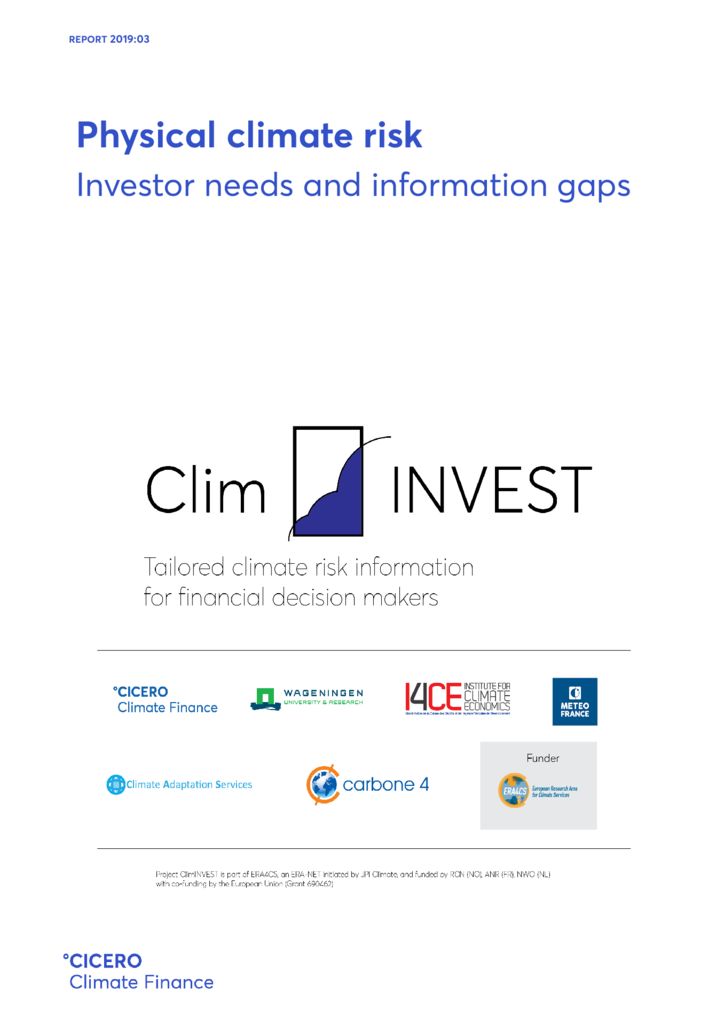Physical climate risk: Investor needs and information gaps
Recent bankruptcy of Californian utility PG&E reckons that companies and their financial stakeholders are already exposed to the potential physical impacts of climate change, also called “physical climate risks”. While risk is at the heart of financial institutions decision-making, only a few of them disclose how their portfolios – with potential PG&Es – are exposed to physical climate risks.
What do financial institutions need to account for physical climate risks in their portfolios?
In the frame of this report for the ClimINVEST European project, I4CE and consortium partners carried out interviews with investors in France, the Netherlands and Norway to analyze their needs. The report incorporates findings of I4CE’s deep-dive into available approaches to analyze climate risks and their gaps.
Pension funds, asset managers, insurance providers and banks expressed information needs across three aspects of the risk decision-making process:
1. Risk awareness: need for in-house capacity building and training within financial institutions on physical climate risk to increase risk awareness;
2. Risk analysis: need for better tools and metrics to assess how the climate changes and impacts specific sectors, markets and locations;
3. Risk management: need for guidance and information to better engage with companies on climate-related risks.
The report provides detail on the investor needs per country (France, the Netherlands and Norway).
The investor needs identified in this synthesis underscore the need for collaborative efforts between research and finance on improving climate information for risk analysis and management.
ClimINVEST moving forward with investors
In its next phase, the ClimINVEST project team collaborates with financial institutions in France, the Netherlands and Norway in a series of “science-practice labs” to co-design transparent and publicly available information and methodologies based on open-access data. Based on this new report the first round of ClimINVEST science-practice labs will focus on:
– Bank lending to SMEs in France;
– Built environment in the Netherlands;
– Extreme events / flooding in Norway.
Please see the ClimINVEST project’s principal website for more information and updates on the project.

